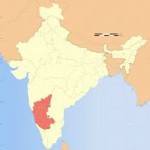Tibetans in the south Indian state of Karnataka have been given the right to hold land in their name, and to be eligible to apply for some government benefits. This new policy gives Tibetans a similar status to Indian residents, something that has been denied them in the 55 years they have lived there and cultivated the land since leaving Tibet to take refuge in India.
The agricultural lands will be leased to the Central Tibetan Relief Committee, which will allot land to individual Tibetans to hold in their own name; they will be eligible for benefits such as crop loans and incentives, particularly from the Revenue and Agricultural department in Karnataka. Tibetans in Bylakuppe, Hunsur, Mungod and Kollegal will be issued the Rights, Tenancy and Crops records (RTCs) on their names.
However, the order has come with a condition that Tibetans will not be eligible to transfer, mortgage or pledge leased lands to anyone else. The land has to be used only to grow crops.
The Bangalore Mirror reported on November 4 that regional commissioners of three districts – Mysuru, Uttara Kannada and Chamarajanagar – were directed last month to implement the government order and issue Tibetans with the RTCs.
Dolma Gyari, the Minister for Home in the Tibetan Government-in-Exile, negotiated these rights with the Karnataka government and the Tibetan Government has assured proper protection and utilisation of lands leased for Tibetans.
Historically, Karnataka was the first state after Himachal Pradesh to offer rehabilitation camps for Tibetan refugees, when the Nijalingappa government allotted land on lease to Tibetans who came to India along with His Holiness the Dalai Lama in the 1960s. The first Tibetan settlement in Karnataka was created when 3,000 Tibetans were allotted a 1,500-hectare tract of uninhabited jungle land on lease at Bylakuppe in 1961. Today, there are five Tibetan settlements across Karnataka state. Tibetans living in these settlements mostly make their living by selling sweaters in winter and coming back to farm their land during the rest of the year.






 Print
Print Email
Email